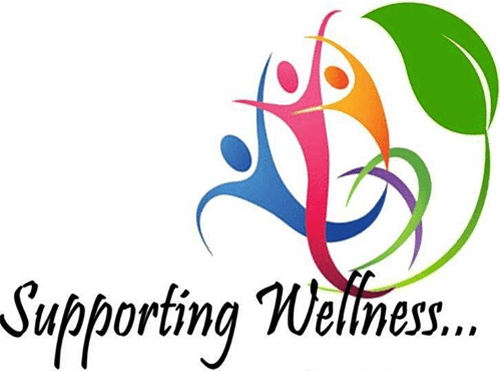Conflict is an inevitable part of life and business. This discussion will explore the concept of and types of workplace conflict, as well as strategies that can be used to help reduce the associated stress and hopefully achieve productive outcomes.
Managing Conflict in the Workplace
Calgary psychologists will tell you conflict can be healthy when there is a challenge to push past boundaries and expand our ways of thinking and navigating work. Diversity in the workplace is an extremely powerful tool as it can lead to greater creativity and innovation, expanded ways of thinking about others, and meaningful organizational change. Imagine if we all thought the same, there would be so much less creativity and innovation in our work.
The problem with conflict is the emotional reaction that is elicited. When we feel emotionally triggered, stressed, and passionate, it can be difficult to behave in constructive and productive ways that align with our best intentions. This emotional stress can lead to adverse outcomes for both the individuals (directly and indirectly) and the overall company culture. Often, people shut down and wait for the conflict to blow over, or react in ways that are not helpful towards fostering mutual understanding and growth. As noted by The Centre for Leadership & Development, the notion that “conflict is always negative” is a myth, and that “workplace conflict is often creativity and innovation trying to happen, and savvy organizations [should] look for ways to embrace and optimize conflict.”
This is where conflict competence comes in. Many instances of conflict provide the space for meaningful conversation, mutual understanding, and ideally, resolutions that reduce the opportunity for recurrent conflict. But executing the correct coping strategy depends on the type of conflict that is occurring.

Types of Workplace Conflict
Interdependency Conflict.
Working with others creates an opportunity for conflict. This conflict can stem from a variety of things, such as navigating task division and deadlines.
Work Style Differences.
There are many ways to get the same task done. Various preferences for work can be challenging to navigate when working towards similar goals—for example, working collaboratively in teams vs. alone, methodological vs spontaneous organization, the pace of work etc.
Differences in Values, Culture, and Ethics.
Diversity is an excellent thing as it broadens the perspectives in the workplace. But often, when there are conflicting values, cultures, or ethics – it can be profoundly triggering as they tap into the core of who a person is.
Personality Differences
In such an individualistic society, there will inevitably be personality clashes. Personal traits often conflict with one another but are unlikely to change as they get into the core of someone beyond their work environment. This can manifest simple things like types of humour, sociability, sharing about one’s personal life etc.
Leadership Differences.
There are many different approaches to leadership. This can cause tension between leaders when they aspire to handle things differently. Stress may also arise when workers are not relating to their leaders in healthy and productive ways.
Key Strategies for Moving Forward
It is essential to understand that each situation is unique, but here are some general tips offered by our Calgary psychologists that may help you understand conflict and navigate it in helpful ways.
Learn to recognize and regulate your emotions and reactions.
Learning to regulate our emotions allows us to have a more healthy and productive approach to conflict. You will be better able to understand the problem and its impacts. By calming down and having a more settled and open approach, you will be better able to navigate challenging conversations in ways that allow you to feel heard.
Active Listening.
A significant part of this involves active listening skills; this means listening to understand, not to respond. The natural tendency to focus on what we want to say, rather than listening, limits our ability to understand and adjust based on what the person says. The goal of conflict resolution should be to find a sustainable middle ground that works for both people involved. Often these hard conversations provide insight.
Understand the impacts of the conflict & what you can control.
Identify what the problem is and why it bothers you. How important is this issue for you, and what are the impacts it is having on your work? If it is not impacting your current work directly, and you have limited control, try to limit how much energy you are investing in the situation. There are inevitable differences between people, and learning to respect and tolerate these can be fundamental.
Look at other perspectives.
Consider the other person’s perspective – what would you be feeling in their situation? What are you assuming their intentions are? What could some other intentions be? Are they aware of this problem? This is an area where therapy can be useful, as it can help you understand what is triggering you, and what is fueling your feelings, thoughts, and behaviours around the situation. Remember, the goal isn’t to win an argument, it’s about “finding ways to work with a difficult person you’re going to see 5-days-a-week for a long time to come.”
Meta-communication.
This essentially is “communication about communication. When you intend to have an important conversation, catching someone off guard can trigger reactivity. Before you have a big conversation, it can be helpful to mention your desire for a discussion and establish an agreement on how and when it will occur. Meta-communication can also be useful if a conversation doesn’t go how we would have liked. By discussing what didn’t go well and why – we create space for improved communication in the future.
Check out these links for more information.
- 10 Conflict Resolution Tips
- 4 Myths of Conflict Management Debunked
- Ted Talk – How to Deal with Difficult People (Jay Johnson)
At Supporting Wellness, we strive to provide you with a safe place to speak, share and reflect openly while gaining unbiased insight and perspective from a professional. We understand that workplace conflict can be draining physically and emotionally, and want to help. Our psychologists are passionate about providing you with the support and tools that will allow you to tackle conflict and hard conversations with grace. To set up an appointment, contact us today by phone at (888) 622-8350, or email us at general@supportingwellness.com.

